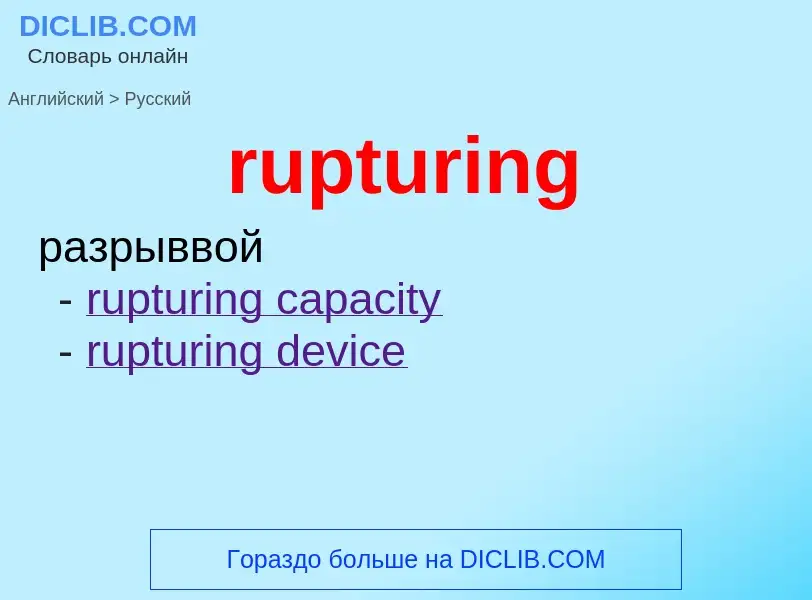Translation and analysis of words by ChatGPT artificial intelligence
On this page you can get a detailed analysis of a word or phrase, produced by the best artificial intelligence technology to date:
- how the word is used
- frequency of use
- it is used more often in oral or written speech
- word translation options
- usage examples (several phrases with translation)
- etymology
rupturing - translation to English
v.
break, rupture, cancel, dissolve
Wikipedia

In electronics and electrical engineering, a fuse is an electrical safety device that operates to provide overcurrent protection of an electrical circuit. Its essential component is a metal wire or strip that melts when too much current flows through it, thereby stopping or interrupting the current. It is a sacrificial device; once a fuse has operated it is an open circuit, and must be replaced or rewired, depending on its type.
Fuses have been used as essential safety devices from the early days of electrical engineering. Today there are thousands of different fuse designs which have specific current and voltage ratings, breaking capacity, and response times, depending on the application. The time and current operating characteristics of fuses are chosen to provide adequate protection without needless interruption. Wiring regulations usually define a maximum fuse current rating for particular circuits. Short circuits, overloading, mismatched loads, or device failure are the prime or some of the reasons for fuse operation. When a damaged live wire makes contact with a metal case that is connected to ground, a short circuit will form and the fuse will melt.
A fuse is an automatic means of removing power from a faulty system; often abbreviated to ADS (Automatic Disconnection of Supply). Circuit breakers can be used as an alternative to fuses, but have significantly different characteristics.


![A set of pole-top fusible cutouts with one fuse blown, protecting a [[transformer]] - the white tube on the left is hanging down A set of pole-top fusible cutouts with one fuse blown, protecting a [[transformer]] - the white tube on the left is hanging down](https://commons.wikimedia.org/wiki/Special:FilePath/Blown Fuse Cutout 640.jpg?width=200)
![markings]] that can be found on a fuse. markings]] that can be found on a fuse.](https://commons.wikimedia.org/wiki/Special:FilePath/D01-Neozed-16A.png?width=200)
![A 115 kV high-voltage fuse in a substation near a [[hydroelectric]] power plant A 115 kV high-voltage fuse in a substation near a [[hydroelectric]] power plant](https://commons.wikimedia.org/wiki/Special:FilePath/Fuse 115kv 640.jpg?width=200)










